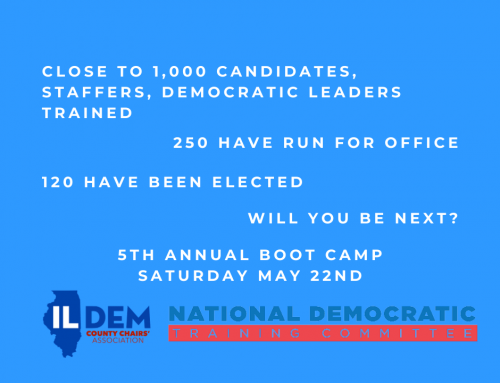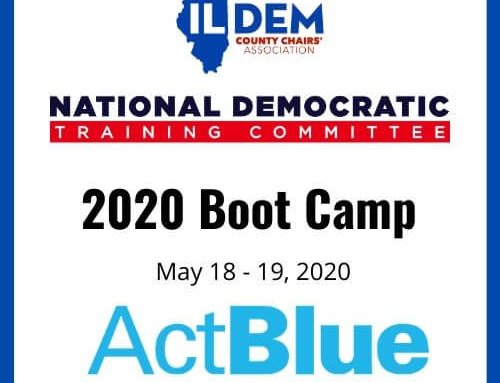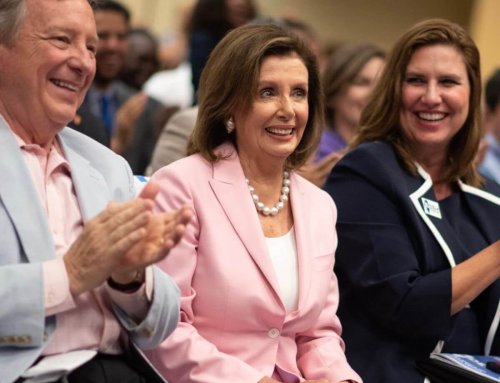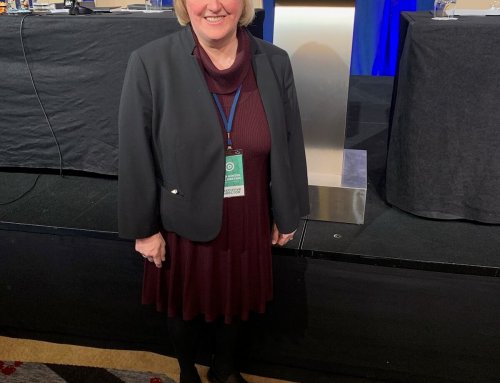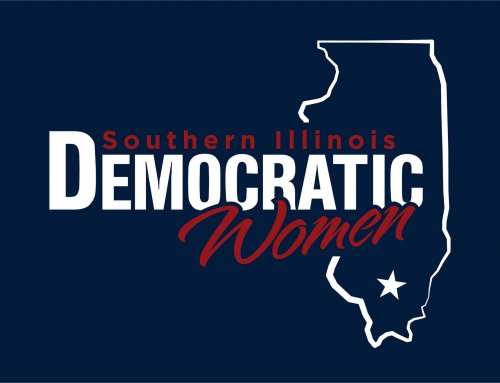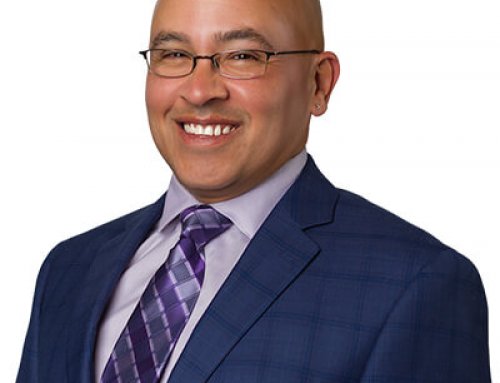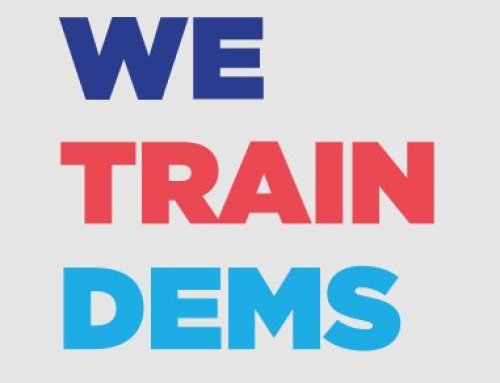Making the Blue Wave Happen
by National Democratic Training Committee, @traindems
A Not-So-Uncommon Story
Sarah decided to run 48 hours before the caucus. The absence of another candidate was reason enough for her to run. She didn’t want to run alone, and she had two days to convince others to run with her.
On December 6th, 2016, I gathered with eighty of my fellow Democrats from Normal, Illinois gathered for a caucus at the local Senior Center. We nominated Sarah and a slate of 5 other candidates for positions on a board that no Democrat had ever served on before.
In January 2017, a few community leaders hosted a training based on the Indivisible Guide. My town packed a union hall on the outskirts of town. Some people were turned away, so they hosted a second. And we packed the hall again.
We packed that hall for the monthly meetings of our county Democratic party. Then, we packed into kitchens and basements to make phone calls for our candidates. We packed into a room in the local YWCA to build power for a Welcoming Cities ordinance.
Then, we packed into voting booths on April 4, 2017 and won four seats. We elected four women - Sarah, Sam, Arlene, and Sally - and took a majority on a board that had never seen a Democrat before.
And then we packed the 2018 ballot.
The absence of another candidate was reason enough, so 10 more candidates stepped up. Together, they challenged two Republican state representatives who hadn’t been challenged in 20 years. They challenged an incumbent County Clerk. They challenged more seats on our County Board than ever before.
And in March 2018, we put more Democratic precinct committeepeople on the ballot than we ever had before. The number of women serving as PC increased by 800%. For the first time ever, more Democratic PCs were elected than Republicans.
This is What Democracy Looks Like
It turns out the story of Normal - my home, where I serve as a Precinct Committeeperson - is not at all unusual in 2018. All over the country, candidates like Sarah have nominated themselves in the absence of another candidate.
In every state, people were inspired to pick up a phone and call their Senator for the first time.
We picked up protest signs and megaphones, took to the streets, and made time for meetings and demonstrations and sit-ins and town halls.
We learned a devastating lesson about our democracy in 2016: progress depends on us embracing our obligation to one another.
Because democracy isn’t just what we do on election day - it’s everything we do in between.
It’s educating our neighbors, supporting our candidates, and holding our representatives accountable. Democracy is protesting and door knocking and phone calls. It’s the news we choose to retweet and the thoughts we post on Facebook.
We learn every day from our successes. Some days it feels like we’re learning more from our mistakes.
The Biggest political story of 2018
The biggest political story of 2018 will be down-ballot Democrats who nominated themselves in the absence of another candidate. We are putting up a fight where nobody expected us too, and we will win where nobody expects it, too.
Where we lose we’ll see margins narrow, and we will be ready to resist. We know what’s at stake.
That’s why the National Democratic Training Committee has trained thousands of Democratic candidates over the past year.
We stand behind Democrats in all 50 states. We are ready to train every Democrat who has nominated themselves in the absence of another candidate. And we stand behind every Democrat who decided voters in their district deserve a choice, and every Democrat who decided their district deserves better.
Those candidates will be the heroes of 2018. What you may not read about are the organizers behind them.
The biggest political story of 2020
For too long we believed that changing demographics and a cultural shift would keep Democrats in power and protect the progress we’ve made. Now we know we can’t take anything for granted.
If democracy is what we do between elections, we have a lot of work to do before November 2020.
We need to get to know our neighbors, listen to them, and understand them. We need to step out of our comfort zone and be visible in our communities. And we need to do all of this in addition to getting Democrats out to vote - where there is work to be done, we need to nominate ourselves to do it.
In Illinois this year, more than 8,500 Democrats have nominated themselves to represent and serve their precinct on their county’s Democratic Central Committee. That’s where NDTC comes in.
This September, the National Democratic Training Committee hosts a program (FLIP) in which we train these Precinct Committeepeople across the state.
We invite you to nominate yourself - contact your local Democratic party and volunteer to get involved in your own precinct.
The biggest political story of 2020 will be grassroots Democrats who organize their own neighborhood, take seriously their obligations to others, and build democracy from the ground up in and out of election season.
We hope you’ll be a part of it.

